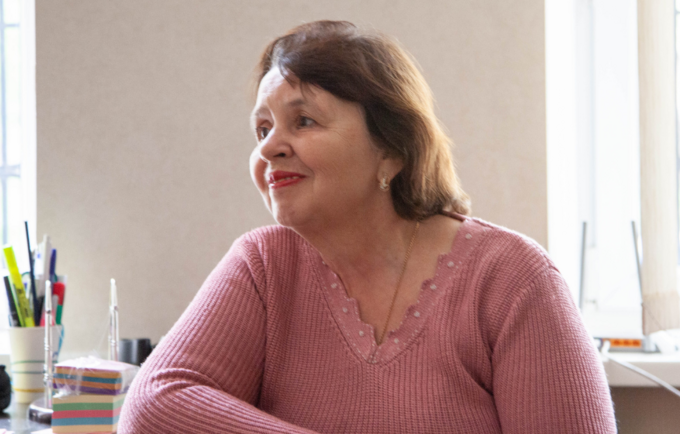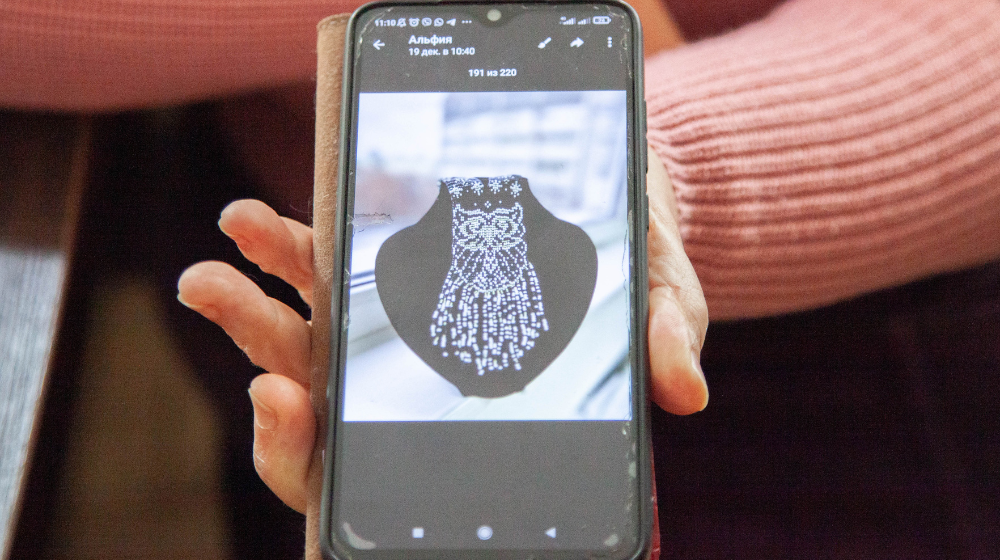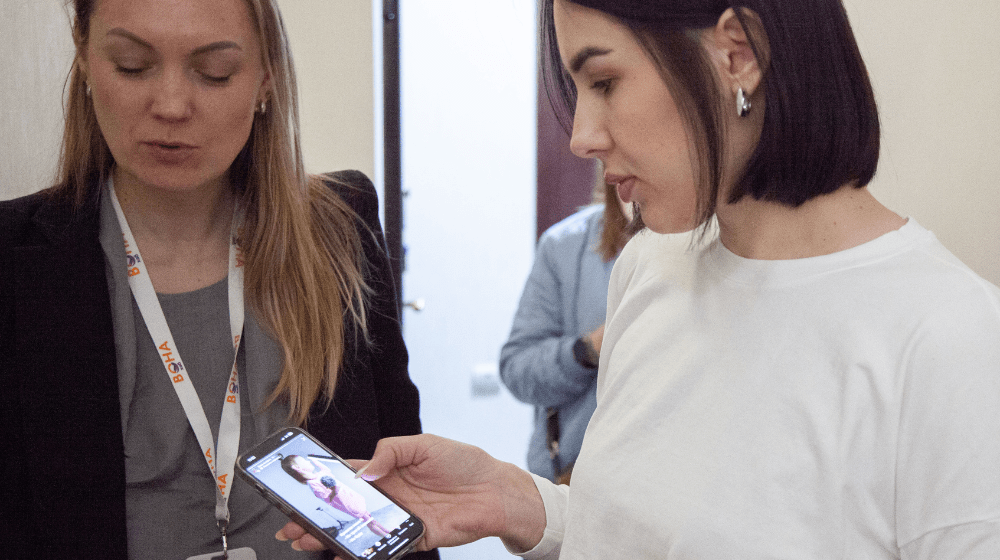
Ms. Harifulina is one of the 5.1 million Ukrainians who have been internally displaced by the war. She used to live in Kramatorsk, a city located in the eastern Donetsk region near the frontlines that has repeatedly been hit by air strikes. The fighting forced her to move hundreds of kilometres away to the city of Dnipro, where she found safety but felt like a stranger. "I arrived with only two bags, leaving behind all my friends and the life I knew,” she said. “It was incredibly difficult to leave my city at this age, it was a terrible feeling.”
Women make up 58 per cent of Ukraine’s internally displaced population. And like Ms. Harifulina, many struggle to settle into their new environment where they must take on new roles and responsibilities. The United Nations Population Fund (UNFPA) created a project known as VONA Career Hubs to help women develop job skills and financial literacy. When it was launched in 2020, it initially focused on survivors of domestic and gender-based violence. But since the start of the war, it has been expanded to include women who are internally displaced and those from vulnerable populations or older age groups.
Specialists at the hubs tailor their approach to the unique needs and capabilities of each woman. Through personalized support, they empower these women to regain control over their lives and careers. This supportive environment fosters skills training and contributes to rebuilding women’s confidence and independence.
It was through this programme that Ms. Harifulina started her own business making necklaces. "These are designs of Ukrainian Poppies. They are all based on Ukrainian motifs,” she said while showing off images of her intricate jewellery on her phone. On top of learning new skills and earning some income, Ms. Harifulina‘s business has brought the added benefit of connecting her with other women: "I came here to learn about collaboration and share my skills. It's a community."

Largest ageing population affected by conflict
Ms. Harifulina’s experience is similar to many others’ unfolding across Ukraine, which has the largest proportion of older people affected by conflict globally. A quarter of its population is over 60 years old, and more than 1.7 million are over the age of 80.
The mass displacement of people away from occupied areas and the frontline has left behind older people who cannot move as easily and struggle to find support. According to the United Nations Ukraine Common Country Analysis 2023, 34 per cent of older people in need said they have not received humanitarian assistance during the war. For those who did receive aid, 58 per cent said they found the process difficult, while only 20 per cent said it was easy to access. And as the socio-economic conditions in Ukraine continue to worsen, approximately 80 per cent of single pensioners, who are predominantly women, live below the poverty line.
The VONA Hubs and other UNFPA projects aim to respond to the demographic shifts created by the conflict and to build up the capacity of older people in Ukraine to maximize their skills, experience and resilience.
Network of support tailored for women
Another participant in VONA Hub is 29-year-old Olena Hrabovenko. She channels her creativity into designing clothes for children and adults that are practical and low-maintenance - essential features during such uncertain times. "Each piece is crafted with the child's comfort and the parents' convenience in mind, ensuring the clothes are suitable for all-day wear and easy to care for," she said. As Ms. Hrabovenko speaks, the sound of a nearby air strike explodes, emphasizing the constant threat Ukrainians continue to live under.
The conflict has significantly strained Ukraine’s social welfare system, with the increase of internally displaced persons and the government's resources dedicated to the war. This has led to substantial gaps in essential social services, especially for women and vulnerable groups, such as older people, gender and ethnic minorities, and those with disabilities.
UNFPA and the VONA Hubs are helping to fill those gaps. Ms. Hrabovenko came to the career centre after being referred by another UNFPA-supported programme. They are all part of a broader network that assists individuals impacted by displacement, gender-based violence and conflict-related sexual violence. This network includes Vilna, a safe space for women, survivor relief centres, and psycho-social support mobile teams. These services are interconnected, enabling efficient referrals across the network to ensure that each individual receives the necessary support tailored to their specific circumstances.
Author: Issac Hurskin


